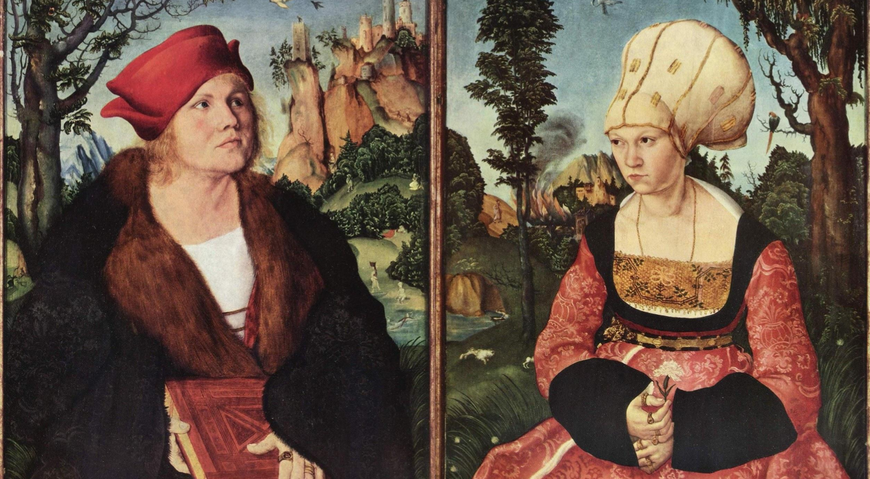Gendering Late Medieval Habsburg Dynastic Politics: Maximilian I and His Social Networks
271 19th Ave S
Minneapolis,
MN
55455
Abstract:
While gender history has developed into a powerful branch of medieval and early modern history on dynastic politics and princely role models, we still know surprisingly little about gender relations in the courtly environment of Maximilian I, despite his spectacular dynastic arrangements including two marriages of his own. One reason for this bias is that research on Maximilian I concentrated for a long time on the individual personality of the emperor without paying very much attention to the manifold relations among men and women around the emperor that in fact contributed to establishing his rule. Another reason are the specific structural constellations of Maximilian´s relationships with his wives Mary of Burgundy and Bianca Maria Sforza, with his daughter Margaret of Austria and grand-daughter Mary of Hungary, which have been discussed frequently but more so in the framework of their personal courts and regional politics and less in a wider comparative perspective.
Against the backdrop of recent approaches to dynastic politics, role models, and agency Professor Lutter’s lecture will (1) discuss the gendered dimensions of Maximilian´s dynastic politics in their wider geo-political and socio-cultural context in a comparative manner. How did seemingly “individual” princely qualities, behaviour, and actions relate to representations of gender roles, political motives and cultural traditions? In doing so, Lutter will (2) move beyond a focus on key dynastic actors to take into account personal networks as fundamental for any type of pre-modern rule. Women played important roles at all levels of the court, not just as “ladies in waiting”, but also in terms of provision and supply, of intellectual and religious education, of social and political patronage as well as pious foundations and other charitable activities. Likewise, women´s courts were obviously not just staffed with female, but also male, members of a large variety who were connected to each other by marriage, kinship and acquaintance. All their activities served as resources for courtly politics. However, as many women´s tasks were less often framed in terms of formal offices, they were often less visible to both contemporaries and to previous researchers. Following court ladies, female servants and employees and the social networks they were part of (e.g., the intellectual community of noble and urban elites and humanists clustering around Maximilian´s court) Lutter will also examine the interrelations between social ascent, office, and the politics of kinship and gender at court and its wider social environment.
Biography:
Christina Lutter is a Professor at the University of Vienna, Institute for Austrian Historical Research (IÖG) and Member of the Austrian Academy of Sciences; she was Head of the Department of History (until 09/2022), and is currently Dean of the Faculty of Historical and Cultural Studies. Her research interests cover medieval and early modern social, cultural and gender history, esp. visions and practices of community; representations of gender and emotions; religious reform movements in medieval and early modern Europe, comparative urban history. She is PI of the research project Gendering Maximilian – Gendered Dimensions of Court Organisation and Representation (1493-1519), and earlier was PI of the project Social and Cultural Communities across Monastic, Urban, and Courtly Cultures in Central Europe (2011-2019), both funded by the Austrian Research Funds within its Special Research Programmes (SFB). A further project focuses on Social Networks, Kinship and Gender in Late Medieval Vienna.
She holds a PhD from the Univ. of Vienna (Politische Kommunikation in der Frühen Neuzeit, Vienna: Oldenbourg 1998), enabled by a research grant for archival research in Venice and wrote her second book (habilitation) on Geschlecht & Wissen. Monastische Reformgemeinschaften im 12. Jahrhundert (Vienna: Oldenbourg 2005).
Recent book publications include:
Ich, Helene Kottannerin. Die Kammerfrau, die Ungarns Krone stahl, with J. Burkhardt (Wissenschaftliche Buchgesellschaft Darmstadt 2023
Kinship and Gender: Comparative Perspectives on Practices of Interaction and Belonging, ed., with A. Gingrich, (=History and Anthropology 32/2 (2021) London; NY: Routledge);
Kulturgeschichte der Überlieferung im Mittelalter. Quellen und Methoden zur Geschichte Mittel- und Südosteuropa, gem. mit E. Gruber, O. Schmitt (UTB 4554 Medium, Vienna: Böhlau 2017).
Meanings of Community Across Eurasia, with W. Pohl, E. Hovden (Leiden: Brill 2016);
Visions of Community. Comparative Approaches to Medieval Forms of Identity in Europe and Asia, with A. Gingrich (=History and Anthropology 26/1 (2015) London; NY: Routledge);
More Details at:
About the Kann Lecture:
Born in Vienna, Robert A. Kann practiced law before he and his wife, Marie, fled to the United States following the Nazi annexation of Austria in 1938. Kann later earned a Ph.D. from Columbia University, and was a professor of history at Rutgers University until his retirement in 1976. In 1982, the University of Minnesota acquired Kann's personal library. Consisting of roughly 5,000 monographs, the Kann Collection is noted for its breadth, depth, and integrity as the product of a single collector. The Kann Collection forms an integral part of the Special Collections and Rare Books Division at the University of Minnesota's Elmer L. Anderson Library, serving as a valuable resource for scholars of Austrian history.
Established in 1984 with the dedication of the Kann Collection, the Robert A. Kann Memorial Lecture is delivered each year by a internationally-renowned scholar of Central European history, and is open to the University community and the general public. An expanded version of each Kann Lecture appears in the Austrian History Yearbook.
